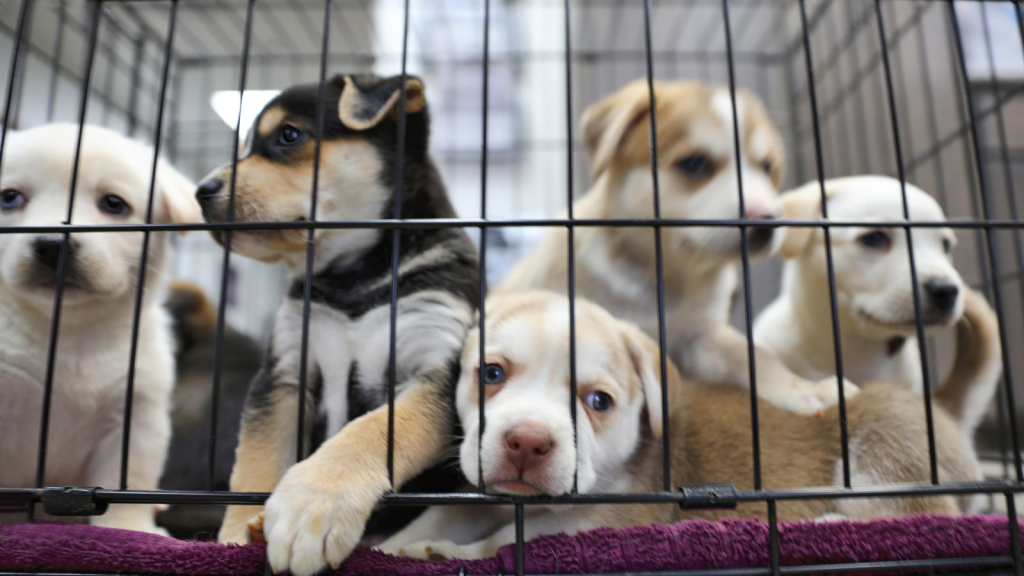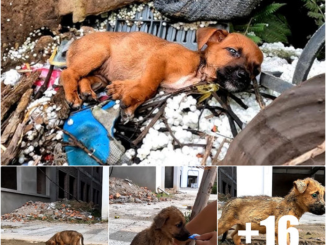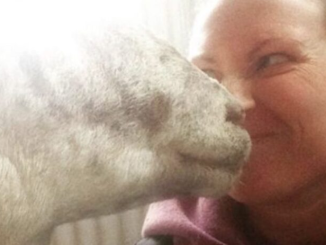Results indicated that not only can dogs detect Covid faster, but they can also do so in a non-intrusive manner – so no need to swab your throat or nose

Dogs can detect Covid-19 faster and more accurately than a PCR test, a new study shows.
Researchers looked at the ability of canines to recognise the virus and its variants, even when they are obscured by other viruses, like those from common colds and flu.
More than 400 scientists from over 30 countries contributed to the study as well as 147 scent dogs, according to the findings published in the Journal of Osteopathic Medicine.
After analysing many studies covering both field and clinical experiments, Professor Dickey and Junqueira found that dogs who are trained to sniff out scents are “as effective and often more effective” than antigen tests.
A total of 53 dogs were trained to sniff out Covid scents, while 37 were not and scientists found that the dogs that were not trained were in some cases “slightly superior” to those that were pre-trained.
“The previously untrained dogs have the advantage that they are not as prone to indicating on scents other than the Covid–19 associated scent,” the paper said.
The results indicated that not only can dogs detect Covid faster, but they can also do so in a non-intrusive manner. This means you won’t need to put a swab in your throat or nose.
How can dogs detect the virus?
This essentially comes down to the dog’s highly evolved nose with its ability to sense out smells quicker.
Dogs possess up to 300 million olfactory receptors in their noses, compared to about six million in humans. And the part of a dog’s brain that is devoted to analysing smells is about “40 times greater” than humans. Canines also have ‘neophilia’, which means they are attracted to new and interesting odours
And so, with all these enhancements, dogs can detect very low concentrations of odours associated with Covid infections.
“They can detect the equivalent of one drop of an odorous substance in 10.5 Olympic-sized swimming pools,” Professor Dickey said. “For perspective, this is about three orders of magnitude better than with scientific instrumentation.”
Scientists also found that in some cases, the animals were also able to detect the virus in pre-symptomatic and asymptomatic patients, “whose viral load was too low for conventional tests to work.”
Professor Dickey has said that dogs can also differentiate Covid and its different variants in the presence of other respiratory viruses. This included the common cold or flu.
“They’re much more effective. In fact, one of the authors that we quote in the paper commented that the RT-PCR test is not the gold standard anymore. It’s the dog. And they’re so quick,” he added. “They can give you the yes or no within seconds if they’re directly smelling you.”

How was the study conducted to see if dogs can really detect Covid-19?
In some studies, the dogs gave a person a quick sniff, sitting down to see if the person has Covid. In another study, the dog was given a sweat sample to smell for a few minutes.
The press release has said that scent dogs, such as beagles, basset hounds and coonhounds are the ideal candidates for sniffing out the virus, given their “natural tendencies to rely on odours to relate to the world.”
But the studies which the researchers analysed showed a variety of dogs were up for the challenge and were able to sniff out the Covid odour. With a few weeks of training, puppies, older dogs, purebred and mixed breeds, both male and female were able to sniff such odours out and “all performed admirably,” the Eureka Alert press release said.
Although there has been success with dogs detecting such viruses, researchers believe there are still many challenges with using dogs for medical diagnoses.
“There’s quite a bit of research, but it’s still considered by many as a kind of a curiosity,” said Professor Dickey.
In conclusion, Professor Dickey and Junqueira said after reviewing the studies, believe that scent dogs deserve “their place as a serious diagnostic methodology that could be particularly useful during future pandemics, potentially as part of rapid routine health screenings in public spaces.”
“Perhaps, most importantly, we argue that the impressive international quality and quantity of COVID scent dog research described in our paper for the first time, demonstrates that medical scent dogs are finally ready for a host of mainstream medical applications,” they added.
COVID-19: Rescue dogs shot dead in Australia over coronavirus restrictions
A council in Australia killed the impounded animals to prevent volunteers at an animal shelter from travelling to pick them up and potentially spreading the virus.

Fifteen rescue dogs, including 10 puppies, have been shot dead by a rural Australian council under its interpretation of coronavirus restrictions.
Bourke Shire Council in New South Wales destroyed the canines, which had been at its pound, to prevent volunteers at an animal shelter from travelling to pick them up and potentially spreading the virus.
“The council decided to take this course of action to protect its employees and community, including vulnerable Aboriginal populations, from the risk of COVID-19 transmission,” the Office of Local Government, a government watchdog, told The Sydney Morning Herald.

The spokesman said officials were investigating whether any animal cruelty laws had been broken.
Five of the dogs had been housed at the pound since early August and one of the dogs then had 10 pups.
The council said staff became concerned for the welfare of the animals due to overcrowding at the pound and two of the dogs attacking one of the others.
A source said the shelter volunteers were distressed and already had COVID-safe measures in place to handle the dogs.
And comedian Ricky Gervais has expressed his disapproval of the killings on social media.
Bourke Shire Council told ABC News the dogs were euthanised because the rescue organisation was from another local government area and they had concerns about people from other communities entering Bourke.

All of regional New South Wales has “stay-at-home” orders in place due to COVID-19.
The council said it had contacted its usual dog rehomer, who is based in the same area, but they were unable to come to Bourke.
The shelter that was supposed to receive the dogs declined to comment.
Animal Liberation regional campaign manager Lisa Ryan has called for an urgent investigation.
“We are deeply distressed and completely appalled by this callous dog shooting and we totally reject [the] council’s unacceptable justifications that this killing was apparently undertaken as part of a COVID-safe plan,” she said.
Australia has recently seen a surge in COVID-19 cases, forcing the country’s largest city, Sydney, to extend its lockdown through September and impose tougher restrictions, such as a curfew and a mask mandate outdoors.
Staff are allowed to work at animal shelters even when lockdown measures are in place, according to the Office of Local Government spokesman.
“Councils are also encouraged to continue to work with re-homing organisations and volunteers to care for animals, where that can be undertaken consistent with NSW Health advice,” he added.



Leave a Reply